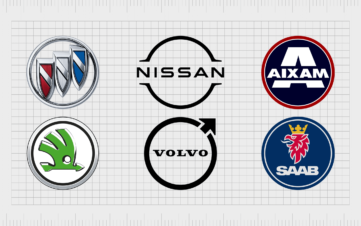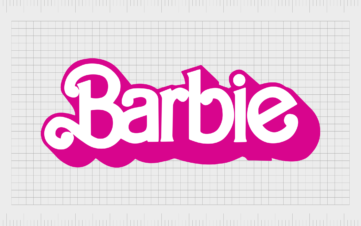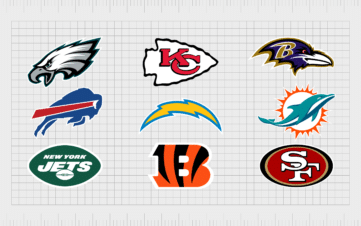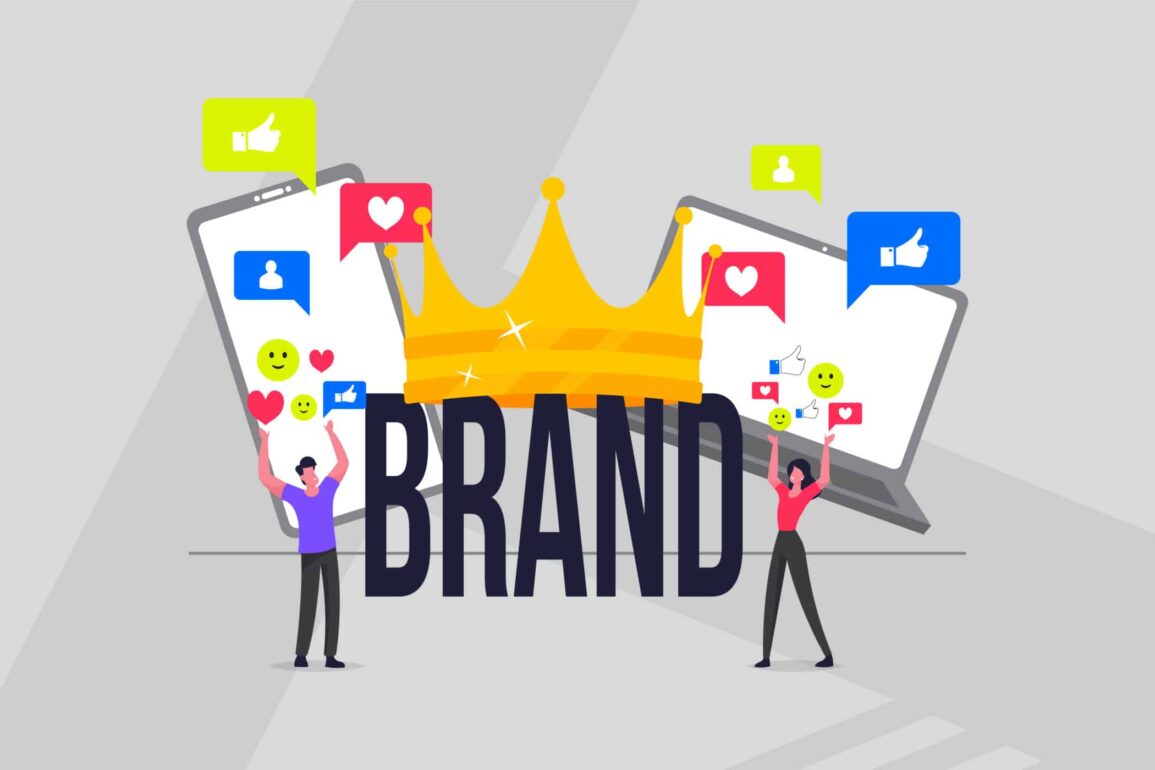Safeguarding symbols: Do I need to copyright my logo?

The term copyright is thrown around a lot in the business world.
Whenever your company produces or purchases something of value, whether it’s a business name, a logo, or some other crucial symbol, you might find yourself wondering if you need to protect it.
After all, valuable brand assets aren’t exactly a dime a dozen.
However, copyrights and trademarks aren’t always necessary in every situation.
Understanding whether you should continue to use your brand assets without protection, or whether you need to find a way to defend yourself from people mimicking your brand identity can be a crucial step for any business owner.
Here at Fabrik, we know how valuable logos can be to our customers.
The right logo doesn’t just help to identify your brand; it also assists in setting you apart from your competition. If someone comes along and steals your logo, then it puts the reputation of your entire company on the line.
Today, we’re going to dive into the legal side of logo creation and protection, to help you answer the question, “Do I need to copyright my logo?”

Can you copyright a logo? The basics
Copyright is a confusing concept when it comes to logos.
According to common federal law in the United States, logos are technically trademarked as soon as they’re used in commerce.
The same rules apply for your business name and other crucial brand assets too. As soon as you start using something that you might identify as a “trademark,” such as a logo, the government agrees that the asset belongs to you.
The only reason that this wouldn’t be the case is if you were using someone else’s logo or trademark.
Here’s the problem, there’s a big difference between the protection that you get from “common law,” and the defense that comes from having a federally registered trademark or copyright. Common law means that you can only enforce your trademark in the area where you first used it.
For instance, if you build your brand in New York City, and start using your logo there, then you can take people to court in NYC that try to use the same image. However, if someone from Houston, Texas tries to use the same logo, you might not have the same protection.
This might not seem like too much of a big deal when you’re running a small company but look at it this way. As your company grows, your reputation evolves with it. You may start to attract customers from other parts of the country, or even other countries around the world.
If someone decides that they want to cash in your success, they could use your logo to convince customers that they’re buying from you, or a business connected to you.
If the company mimicking your brand identity then delivers sub-par products or services, then your reputation suffers as a result, and your sales drop. On the other hand, if the competing brand starts to offer a better service, your clients could start going to them instead of you.
This means you lose all the benefits of true brand loyalty.

So, how do you protect your logo?
To make the most of the logo copyright laws that are in place for business owners, you need to go beyond common law and consider things like copyrighting, and state trademark registration.
Both trademark and copyright have the potential to protect your intellectual property rights. However, this also means that it can be challenging to determine what kind of defense you need.
With that in mind, let’s iron this out:
Logo copyright laws:
A logo copyright applies protection to all creative works. This includes written words, images, illustrations, artworks, and more. In other words, they’re excellent for logo design.
However, you do need to make sure that your logo design is creative if you want to be eligible for a copyright. A lot of symbols in the current landscape are considered part of the “public domain”.
This means that they’re free for you to use, but it also means that you can’t copyright them either.
Logo trademark laws:
A logo trademark, on the other hand, takes your protection to another level. You can place a registered trademark on symbols, colors, and other components that distinguish your business from your competitors.
You can trademark your logo, but you can’t trademark something widely-recognized, like your own name.
In most cases, considering logo copyright laws will be a good first start for businesses, but it’s not the best way to obtain the most protection for your brand assets. Copyrights don’t give your logo the same protections as registering a trademark.
For instance, in some cases, courts can argue that parts of even a copyrighted work can still be used in the “Fair use” principle.
On the other hand, a registered trademark on your logo would mean that no aspect of that symbol can be used by any imposters or competitors.
However, if you want to dispute other organizations that attempt to use your logo, you will need to go through the process of having your mark registered with the U.S. Patent and Trademark Office.
Do I need to copyright my logo?
So, do you need to copyright your logo? Well that depends on how you look at it.
Companies don’t have to have a federal trademark registration or copyright for their logo to go into business. You also don’t need to prove that you own your logo to use it, unless someone comes along and suggests that you’ve been using their symbol without their permission.
However, just because the protection isn’t mandatory, doesn’t mean that it’s not worthwhile.
A logo is an important part of what makes your brand unique and identifiable. It’s basically your abbreviated calling card, capable of summarizing your values, culture, and background into a single image.
Every aspect of your logo is a crucial testament to the brand that it represents.
Just think about the logos that you love, and the ones that you hate. The wrong image can easily send you in the opposite direction from a brand that offers all the services and products that you need. That’s because human beings are highly visual creatures.
If you fail to protect your logo, and someone else ruins the symbol for your business, then you’re basically thrown right back to the drawing board. You need to start from scratch, creating an entire image and reputation for your business again.
It’s an expensive and time-consuming effort, and not something that any business wants to go through.
That’s why, once you have a logo that creates instant recognition in your target audience, you need to do what you can to protect it. Something as simple as registering for a copyright and trademark could be enough to protect your entire business from losing its unique appeal.
After all, with the right understanding of logo copyright laws and trademarks, you’re prepared to take anyone who attempts to mimic your logo to court in a heartbeat.
Logo copyrights and trademarks even protect you from people who might not copy your entire symbol but dilute the appeal of your logo.
Trademark dilution, referring to the misuse of a company’s name or symbol in a way that decreases its impact, is just as serious in the eyes of the law, as logo theft.

Should I copyright my logo? Reasons to seek protection
Answering the question “Do I need to copyright my logo?” is a bit like figuring out whether or not you should get travel insurance.
You hope that you’re not going to depend on it, but it’s nice to know that it’s there. Copyright and trademarks protect the way that an idea is presented, ensuring that your logo remains unique to you at all times.
If you’re still not sure whether you should be investing in some protection for your brand, here are some of the top reasons to copyright or trademark a logo.
1. You get exclusive rights to the image:
Exclusivity is crucial to a brand’s growth. If you want to make sure that your business stands out from the crowd, you can’t afford to have other people coming in and mimicking your image, or tone.
Unfortunately, while common law might give you some basic coverage for your logo, exclusive rights are only obtainable with a copyright and trademark protection.
Once you have the right protections in place, you can sue anyone who tries to use your logo, regardless of where they’re located in your country. (You may need extra protections for global coverage).
2. You protect your brand:
With a registered trademark you stop other companies from coming along and piggy-backing off your success. Unscrupulous brands are less likely to adopt trademarked and copyrighted logos to grow their own companies.
That’s because they know that they face more legal repercussions. Having a copyright or trademark in place could mean that you’re less likely to suffer from damage to your reputation.
3. You add value to your business:
Although you’re probably not thinking about selling your business straight away, you may eventually want to put your enterprise on the market. Because a trademarked or copyrighted logo acts as another form of intellectual property, it gives your business more value.
Anyone who buys your company also gets access to an instantly-recognizable symbol. That’s worth a lot in a world where brand recognition can be critical to success.
4. You gain trust:
Sometimes, having copyrights and trademarks on your brand assets can also help you to gain the trust and respect of your audience. A lot of customers are becoming increasingly weary of counterfeit and low-quality products in an era where companies like Wish.com and Ali-Express exist.
Knowing your way around logo copyright laws could mean that you’re more likely to stand out as a professional entity.
5. You can grow at your own speed:
As mentioned above, common law only gives you protection for the geographical area where you first used your trademark. This makes it hard to maintain a consistent brand as you grow across states and borders.
With a registered trademark and copyright, you can allow your business to grow organically, taking advantage of any new opportunities to spread into new markets. Your logo and reputation will come with you, and it will have all the protection that you need.

How to copyright your logo
Our best advice for anyone thinking of using a copyright or trademark on their logo, is to seek legal help from a professional. There are plenty of experts out there that specialize in things like intellectual property law.
These individuals can help you to answer the question “Do I need to copyright my logo?” and even give you advice on things like trademarks too.
If you do want to go it alone, then you can register your copyright to start with by yourself. If you’re located in the United States, and that’s also where you want to sell to customers, then you can apply for a registered copyright at the US Copyright Office.
You’ll need to search through the website to find the appropriate category for your logo. This usually means clicking on the visual arts section for a logo or brand mark.
Once you’ve clicked on Visual Arts, you’ll be sent to a page where you can download the application form, with instructions on how to fill it out.
According to logo copyright laws, you’ll also need to provide copies of the work that you’re trying to protect. This may include a high-res image.
Once you’ve applied for your copyright, it can take a while before you hear back from the copyright office about whether you’ve been approved or not. It all depends on the number of applications that the Office is dealing with.
The good news is that you should be able to protect your symbol from the day that you applied for the copyright.
Once you’ve registered your copyright successfully, you’ll also be responsible for protecting it. This could mean simply placing a copyright logo on the bottom of your website.
You can also put information about the copyrights that you hold for your logo and other intellectual property on the terms and conditions page of your website.
Trademark and copyright symbols on your website indicate that other people are not permitted to use your properties for their business, or any other purpose unless it is approved by you.
If someone goes ahead and uses your business logo without your permission, you can send them a cease and desist letter, and file a DMCA complaint.
A Digital Millennium Copyright Act is a complaint that allows hosting providers and Google to remove content from the internet that contains stolen items (like logos).
Coming to terms with logo copyright laws
When you’re eager to start a business as quickly as possible, the last thing you want to worry about is boring legal jargon like logo copyright and brand trademark. However, protecting your business and it’s brand assets is one of the most important things that you can do for your organisation.
It’s up to you to decide whether you want to invest in a copyright or trademark solution for your logo.
Trademark can sometimes be easier to use and defend than copyright, but simply having a logo copyright that’s registered with the government could be enough to stop other companies from swooping in and stealing your hard-earned brand equity.
While having a copyright or registered trademark for your logo won’t stop you from dealing with disasters like people trying to steal your reputation, it can give you a lot of crucial defense when it comes to building a powerful company.
Don’t just spend your time and effort finding the perfect logo for your brand. Make sure that once you’ve got your brand assets in place, you have what it takes to defend the things that make you unique.
Fabrik Brands: A creative agency for our times.
Clarity starts with a conversation.
Thanks—we’ll get back to you shortly.
Whether you're navigating a rebrand, merger, or simply need a clearer identity—we’re here to help. No hard sell, just honest advice from people who know the sector.
Let’s start with a simple question…
Prefer to email? Drop us a line.
Fabrik’s been helping organisations rethink and reshape their brands for over 25 years. We’ve guided companies through mergers, rebrands and new launches. Whatever stage you’re at, we’ll meet you there.











